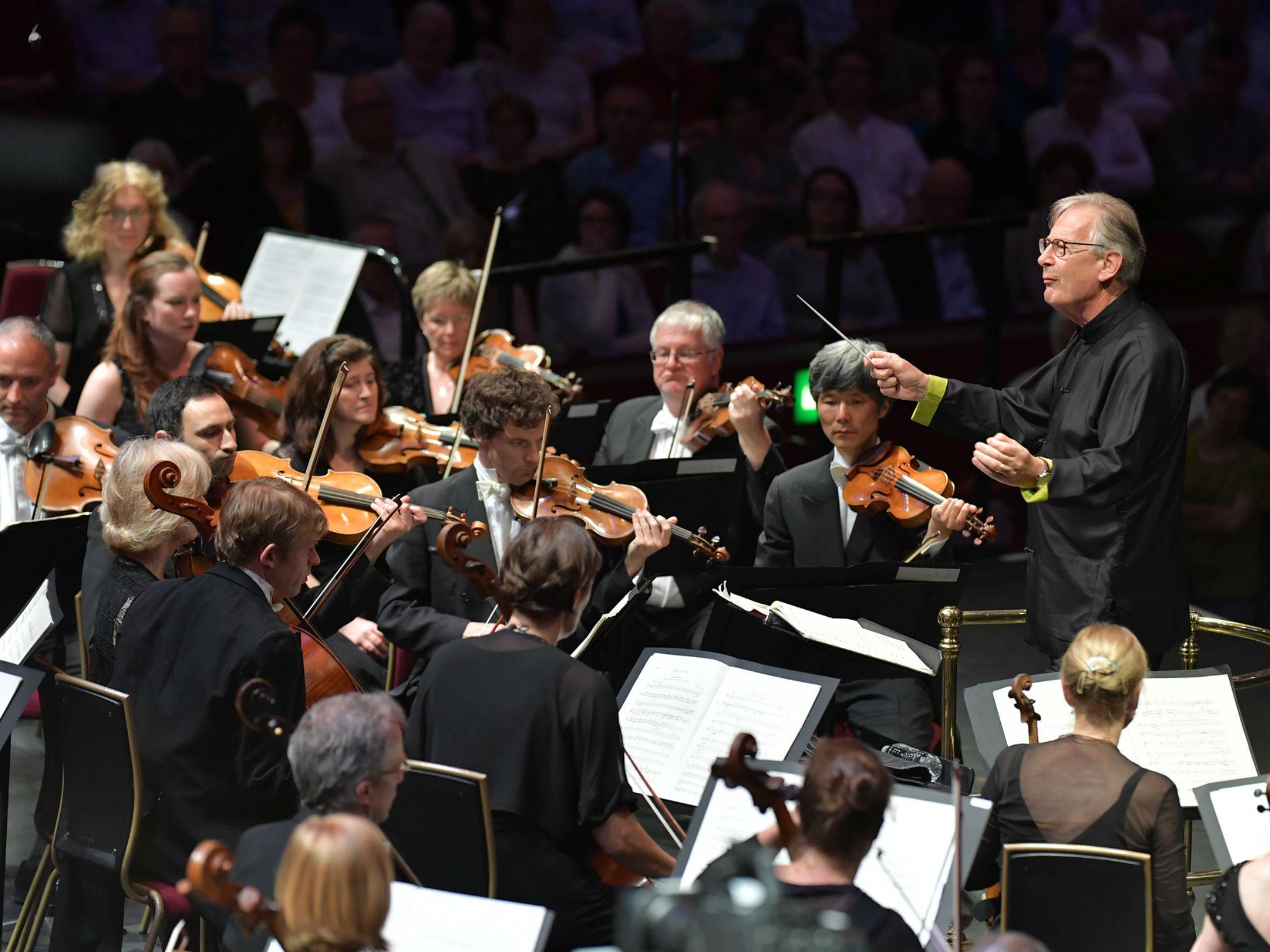Prom 18 and Prom 20, review: ‘Sometimes the Proms strike gold’
Prom 18: Connolly/Tiffin Boys’ Choir/LSO/Haitink and Prom 20: Monteverdi/NYCS/ORR/Gardiner

Your support helps us to tell the story
From reproductive rights to climate change to Big Tech, The Independent is on the ground when the story is developing. Whether it's investigating the financials of Elon Musk's pro-Trump PAC or producing our latest documentary, 'The A Word', which shines a light on the American women fighting for reproductive rights, we know how important it is to parse out the facts from the messaging.
At such a critical moment in US history, we need reporters on the ground. Your donation allows us to keep sending journalists to speak to both sides of the story.
The Independent is trusted by Americans across the entire political spectrum. And unlike many other quality news outlets, we choose not to lock Americans out of our reporting and analysis with paywalls. We believe quality journalism should be available to everyone, paid for by those who can afford it.
Your support makes all the difference.Two great works in two great performances on successive nights: sometimes the Proms strike gold. Bernard Haitink is now 87, but it was only when he ultra-cautiously negotiated the steps down from the podium that we had any intimation of his age. The way he conducted Mahler’s Third Symphony reflected timeless wisdom and flawless control: this was an event which nobody present will forget.
Mahler wanted this work to be “like the world – it must embrace everything”, and all the moments which required a particular magic got it – the martial music heralding summer, the off-stage flugelhorn heard through hushed high strings, the children’s choir at the moment of redemption, and mezzo Sarah Connolly’s lovely entry – “O Mensch! Gib acht!” – which seemed to rise up from the bowels of the earth. The sustained tracery of melodies in the final movement passed like a dream.
The way French-Canadian mezzo Julie Boulianne set the scene for Berlioz’s Romeo and Juliet in a long and hugely demanding solo was even more remarkable: I have never heard a more ravishing vocal command of the Albert Hall’s problematic acoustic. John Eliot Gardiner deployed his forces – the Monteverdi Choir, the National Youth Choir of Scotland, the Orchestre Revolutionnaire et Romantique, plus three soloists – in a kaleidoscopically effective account of this underrated work.
Join our commenting forum
Join thought-provoking conversations, follow other Independent readers and see their replies
0Comments